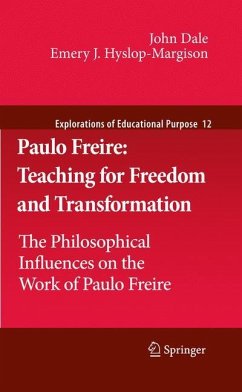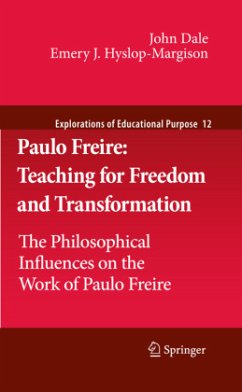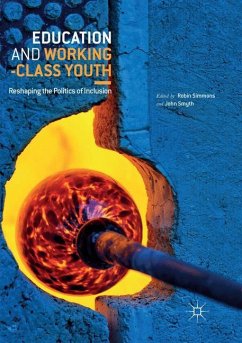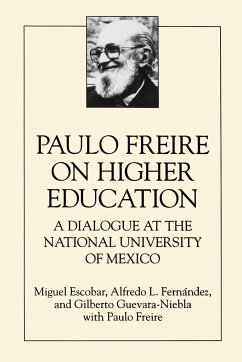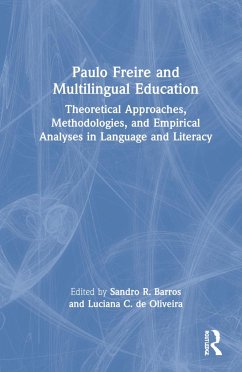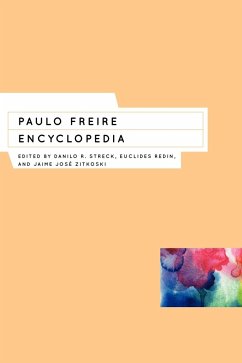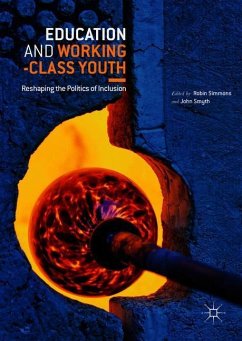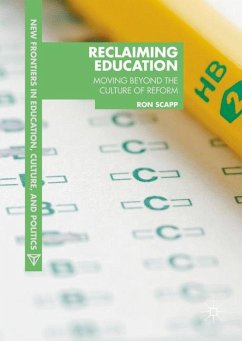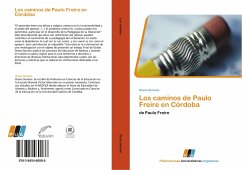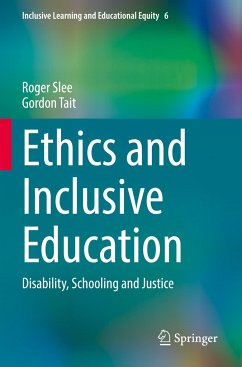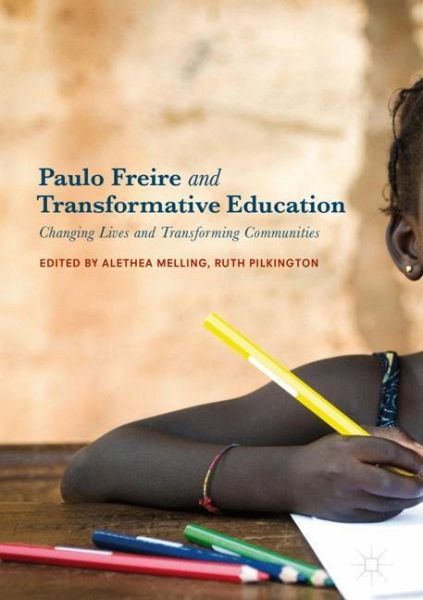
Paulo Freire and Transformative Education
Changing Lives and Transforming Communities
Herausgegeben: Melling, Alethea; Pilkington, Ruth
Versandkostenfrei!
Versandfertig in 6-10 Tagen
91,99 €
inkl. MwSt.

PAYBACK Punkte
46 °P sammeln!
This book brings together a range of global and local themes inspired by the work of Paulo Freire. Freire believed in the possibility of change, rejecting the neoliberal discourse that presents poverty as inevitable: his core principle emphasised the prerogative of transforming the world, rather than adapting to an unethical world order. This responsibility to intervene in reality as educators is explored in detail in this edited collection. Including such diverse themes as pedagogical approaches to globalisation, social mobility, empowerment and valuing diversity within communities, the volum...
This book brings together a range of global and local themes inspired by the work of Paulo Freire. Freire believed in the possibility of change, rejecting the neoliberal discourse that presents poverty as inevitable: his core principle emphasised the prerogative of transforming the world, rather than adapting to an unethical world order. This responsibility to intervene in reality as educators is explored in detail in this edited collection. Including such diverse themes as pedagogical approaches to globalisation, social mobility, empowerment and valuing diversity within communities, the volume is highly relevant to pedagogical practice. Sharing the transformative power of 'being' through popular education and the solidarity economy, this innovative book will be of interest to scholars of Paulo Freire, transformative education and diversity in education.





